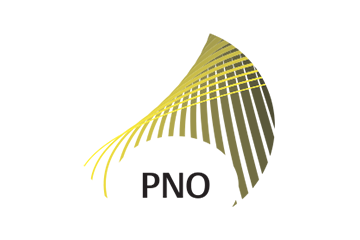Consortium
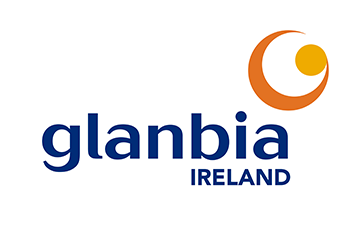
Glanbia Ireland is Ireland’s leading dairy & agri-business company which owns celebrated consumer and agri brands such as Avonmore, Kilmeaden Cheese, Premier Milk, Wexford, mymilkman.ie and GAIN Animal Nutrition. It exports high quality dairy and agri ingredients as well as branded products to over 60 countries.
Drawing from a 2.4 billion litre milk pool supplied by 4,800 family farms, Glanbia Ireland produces top quality dairy products from grass fed, pasture raised dairy herds. Combined with locally produced grains and state of the art milling, this unique agri platform provides for fully traceable and sustainably produced products.
Glanbia Ireland is a joint venture 60% owned by Glanbia Co-op and 40% owned by Glanbia plc. Established in July 2017, it combines Glanbia Ingredients Ireland, Glanbia Consumer Products and Glanbia Agribusiness. With annual revenue of €1.5 billion, Glanbia Ireland has 11 processing plants, 53 agri branches and over 1,800 employees.
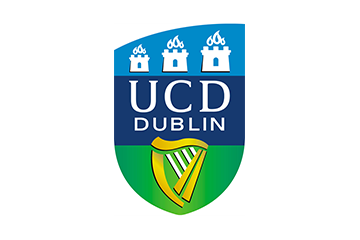
UCD School of Biosystems & Food Engineering is the leading centre for education and research in the application of engineering principles to agriculture, food and renewable resources in Ireland. The school has a long history of Framework Programme funding having co-ordinated and contributed to over 20 projects ranging from large consortium projects to individual fellowhsips. Prof Nicholas Holden, Professor of Biosystems Engineering, has researched the impact of agriculture and food systems for almost 30 years,with a particular focus on soil science, farm system modelling and life cycle assessment (LCA). More recently he has directed his attention to waste and wastage in the food system and the development of sustainable bioeconomy. Dr Fionnuala Murphy, an assistant professor and SFI Industry Fellow, researchers the environmental impact of production systems, with a focus on renewable energy using system analysis and life cycle assessment methods.
https://people.ucd.ie/fionnuala.murphy
http://www.ucd.ie/biosystems/

AMBER (Advanced Materials and BioEngineering Research) is a world-leading Science Foundation Ireland Research Centre, which provides a partnership between leading researchers in materials science and industry to develop new materials and devices for a range of sectors, particularly the ICT, medical devices and industrial technology sectors. The centre is hosted in Trinity College Dublin, working in collaboration with CRANN (Centre for Research on Adaptive Nanostructures and Nanodevices), the Trinity Centre for Bioengineering and with University College Cork and the Royal College of Surgeons of Ireland.

CMP (Commercial Mushroom Producers) is one of Europe's leading horticultural producer organisations, representing 90% of Irish mushroom production and growers. CMP is focused on developing an efficient, sustainable and competitive mushroom industry in Ireland, producing high-quality products for an affordable price.
Established in 1999 as a co-operative by mushroom growers for mushroom growers, we aim to deliver stability to the market by improving the quality of mushrooms, maintaining the consistency of supply and getting a sustainable margin for producers. CMP currently has 44 growing units and is a promoter of cost-reduction and innovation projects to assist in maintaining the competitiveness of the mushroom horticultural sector not only in Ireland but also in Europe. Due to CMP’s programme of consistent improvements since 1999, the farm-gate value of mushroom output has remained constant and significant developments have been realised on mushroom growers’ farms. Apart from the technological and operative assistance, CMP also provides product and process innovation services.
We work to ensure honesty and openness in all our commercial dealings, to consistently demonstrate our passion for quality and strive for continuous improvement of our products to the customer and service to our members. CMPs mission is to enlighten consumers on the virtues and benefits of mushrooms from our growers and to promote and drive category growth for our customers. We will do this through an efficient, fair and sustainable supply chain striving always to optimise returns, innovate and provide best value services to our producers.
PNO is market leader in innovation and funding services in Europe. With offices in 6 European countries, PNO is connected to a global network of national and regional creative partners: multinationals, start-ups, RTOs and universities, sector and public organisations.
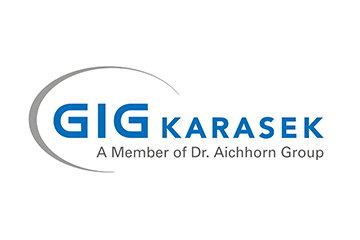
GIG Karasek is the perfect partner for demanding process solutions and plant projects. For decades, we support our international customers in the fields: chemical, paper & pulp, food and pharmaceutical industry. Our specialties of expertise are in the fields of distillation, evaporation and drying. With our own technical center we offer our customers full service support. Therefore we remain constantly on the pulse of time and develop new technologies.
Equipment for the world of tomorrow.
The manufacturing industry is increasingly faced with ever-increasing dynamic and ever-increasing demands. In order to survive in the long run competitive market, it is necessary to prepare today efficiently for the world of tomorrow. GIG Karasek has set itself the task of developing and manufacture this equipment for the dynamic world of tomorrow. From process engineering know-how to manufacturing of special process equipment we bundle our experience of decades to build customized solutions of all sizes. We work on your competitive edge today and your sustainable top position in the future.
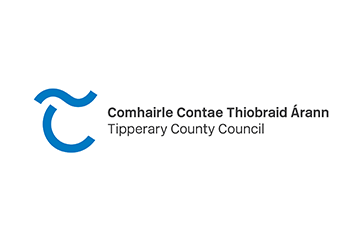
County Tipperary has a population of 160,441 (Census 2016). The county’s economic profile is that of a rural economy with FDI and indigenous enterprises – micro-enterprises and SMEs - which operate across a range of sectors. The county’s diverse economy includes:
- A Life Sciences/Bio Pharma Hub around Clonmel that includes Abbott Vascular, Boston Scientific, Suir Pharma, MSD (Ballydine) and Pinewood Laboratories
- Manufacturing enterprises such as Bulmers, Coillte Panel Products, COTY, Carey’s Glass, Arrabawn Co-op, Tipperary Co-op, Centenary Co-op, ABP Meat Processors, and Tipperary Natural Mineral Water
- Rural towns which play a significant role in providing retail and financial services, recreation and employment
- Superb fertile land which provides an ideal environment for agriculture and food production which includes artisan foods
- A horse breeding industry which includes the world renowned Coolmore Stud Farm and Ballydoyle Racing Stable
- Tourism which offers significant potential for the rural economy. Key tourism attributes are the built and natural heritage of the county and the opportunities the landscape offers for outdoor recreation. Attractions include Lough Derg, mountain ranges such as the Knockmealdowns, Galtees, Slieve Felim, and the Devil’s Bit; the Rock of Cashel, Holycross Abbey, Cahir Castle and Roscrea Castle.
- A third level education facility, Limerick Institute of Technology, which has campuses in Clonmel and Thurles; and linkages with third level colleges in adjacent counties.
Positive developments planned that will enhance the county’s attractiveness for further economic growth include the following:
- The development of ‘Questum’ – a multi-purpose 1,700 sq.m. education, training and research centre on the Science and Technology Park in Ballingarrane, Clonmel.
- A review of the current bespoke plan for Ballingarrane which will outline the suitability of the park for high end employment uses (including medical device, pharmaceuticals, food and advanced engineering projects) and the development of an appropriate marketing plan for same. The Ballingarrane site is tailored for the Bio Pharma investment.
- Development potential of the Lisheen Mine site which comprises the mine shaft and related facilities, a substantial aquifer, modern office buildings, fully equipped engineering workshops, sophisticated IT networks, and an environmental monitoring centre
- Destination & experience development ongoing and planned for Lough Derg and Munster Vales tourism destinations and the potential for areas of the county included in Ireland’s Ancient East proposition
- Provision of Gas pipeline from Limerick to Nenagh
- Further development of existing enterprise centres
- Create appropriate economic development opportunities throughout the county in order to address rural economic decline and regional imbalances.
Key Action areas for the development of County Tipperary
- Address key economic infrastructural deficits in the county. Particular reference was made to the provision of high speed broadband and enhancement of transportation links on a regional and county basis.
- Develop the Lisheen (Vedanta holdings) site in Killoran, Thurles as the National Bioeconomy Campus for Ireland with a European and global reach in the Bioeconomy sector. Bring together all relevant national and international stakeholders from academia, research, industry and local, national and EU government.
- Maximise the potential of Co. Tipperary as a location for investment through branding and marketing of the county. ‘Tipperary The Place The Time’ launched in May 2017 is the marketing tool being employed by Tipperary County Council to market and sell Tipperary as an investment location.
- Increase the number of enterprise start-ups and grow the microenterprise sector to scale as appropriate.
- Support the development of emerging sectors or sectors with further potential such as tourism, food, multi-media and agri-tech while also working with vulnerable economic sectors to mitigate any negative impacts on the local economy. Sectors identified as being vulnerable included the retail and construction sectors.
- Support enterprises to improve energy efficiency, increase use of renewable energy, and grow the renewable energy sector.
- Ensure the workforce meets current and future employment skill requirements.
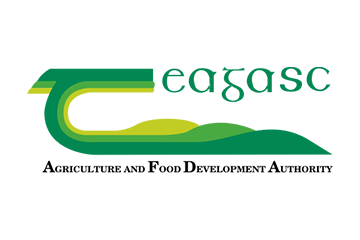
Teagasc is the national body providing integrated research, advisory and training services to the agriculture and food industry and rural communities in Ireland. Its mission is to support science-based innovation in the agri-food sector and the broader bio-economy that will underpin profitability, competitiveness and sustainability. Teagasc employs 1,100 staff at 52 locations throughout Ireland, consisting of 216 research scientists, 51 specialists and specialist advisers, 116 research technicians and technologists, 171 support staff, circa 175 Walsh Fellows (PhD students) and over 250 advisors, college lecturers, technicians and education officers.
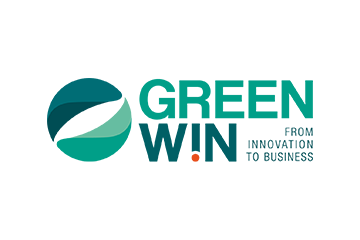
Together with PNO, GreenWin (GW) is the main partner of the Work package 7 (Dissemination, Communication and Exploitation). GreenWin also work on the ACW replication strategy in its region, Wallonia (BE).
GreenWin is one of the six triple helix innovation clusters set forth by the Walloon Government in Belgium. Its mission is to promote innovation in environmental technologies and to foster the development of ambitious collaborative projects in R&D, industrial investment or skills development, with an objective of economic growth for industrial members and of job creation in Wallonia.
Greenwin’activities focus on three leading markets:
- Sustainable chemistry, including CO2 transformation into a variety of value-added products, process intensification and white biotechnologies
- Sustainable materials for the construction sector: production of building materials or building systems with reduced environmental impact, energy efficiency and energy storage solutions, etc
- Environmental technologies: waste treatment and recycling, water and air treatment, soil remediation, sludge recovery.
GreenWin brings together in a single network about 200 partners, including 150 companies (75% of SMEs), 5 universities, 18 research centres, 6 organisations providing professional training, as well as a variety of organizations that foster the green economy.
Therefore, bio-based chemistry and circular economy are one of the GW’s strategic focus.
At local scale, we are active partners in the Coq Vert intiative (http://www.coqvert.be/en/) aiming at establishing of a competitive bio-based economy in Wallonia by putting together a concerted strategy.
Internationally, GreenWin in involved in various green chemistry relevant networks (BIC – Bio-industries consortium) ; Vanguard Bioeconomy Initiative ; ECRN et Suschem) as well numerous international projects. Through our local and international networks, we will contribute to AgriChemWhey visibility and draw relationships between ACW and other initiatives.
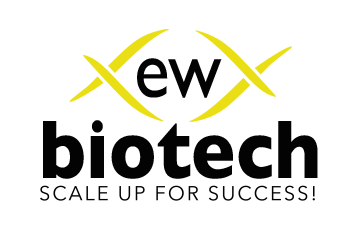
EW Biotech GmbH is part of the EW Nutrition GmbH, a company engaged in the research, development, manufacture, and marketing of patented food and feed products and additives for humans, livestock, and companion animals in Germany and internationally.
At our site in Leuna we operate fermentation and downstream lines from lab scale to production scale with 85 m³ fermenter under industrial conditions 24/7.
The downstream equipment includes multiple filtration units, SMB Chromatography, Ion Exchange, Activated Carbon units, evaporation, Crystallization and more.
Besides scale-up and tolling services the facility enables expanded research and development activities in the field of biotech products.

KU Leuven boasts a rich tradition of education and research that dates back six centuries. The university’s basic research orientation has always been and will remain fundamental research. At the same time, the university remains vigilantly open to contemporary cultural, economic and industrial realities, as well as to the community’s needs and expectations.
KU Leuven is currently by far the largest university in Belgium in terms of research funding and expenditure (EUR 466.55 million in 2016), and is a charter member of LERU. KU Leuven conducts fundamental and applied research in all academic disciplines with a clear international orientation. In the Times Higher Education ranking KU Leuven is ranked as the 14th European university, while in the Reuters Top 100 of the World’s most innovative institutions, KU Leuven is listed as the first European university.. Within KU Leuven, the Centre of Surface Chemistry and Catalysis (COK) constitutes a large interdisciplinary team involved in teaching and research in the chemistry of the solid-gas, solid-liquid, and solid-solid interphases. COK research focuses on design, characterization and application of nanostructured and nanoporous materials for sustainable catalysis, molecular separations and controlled release. The lab has proven expertise in the use of (continuous) reactions with biomass in the liquid phase at high pressures and temperatures and in the use of gas phase reactors. Over the past years, the COK has grown substantially and currently counts more than 120 people.
